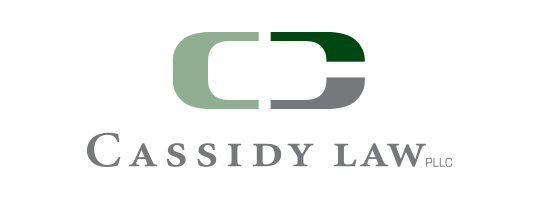
Former Defense Secretary Donald Rumsfeld, when speaking about the Iraq War, took a lot of “writ” for saying there are unknown unknowns and that the unknown unknowns are difficult to manage.
No doubt it is a weird statement on its face. But, most folks who manage risk for a living understand that the unknown unknowns are precisely the events that will cause trouble for an organization because you cannot mitigate risks you don’t know about.
These unknown risks are what makes third party due diligence so difficult. To manage third party risks, businesses conduct extensive background checks on third parties; demand that third parties answer questionnaires; and include extensive representations and certifications in their third-party contracts. These efforts are generally necessary.
But, many organizations fail to consider more basic methods to manage third party risks – a business leader’s market knowledge and common sense. Having effective third party relationships that don’t get your business in legal trouble and that make business sense is an exercise in identifying and managing risks:
- The risks you know about (You want to sell a product to Russia through a third party, you know there are US trade sanctions against Russia that you must manage.)
- The risks you don’t know about yet you know they may exist (Your sales consultant in Kazakhstan says he knows he cannot bribe to get sales. But, you know Kazakhstan has been identified as an incredibly corrupt country, so your consultant may be asked for bribes.)
- The risks you don’t know and don’t even know they exist – the unknown unknowns. Read on…
A great example of getting bit by unknown unknowns when engaging a third party is Walgreen’s experience in teaming with Theranos.
Let’s start with what is a known known – now in the spring of 2018.
We know now that the SEC filed a complaint against Theranos founder and CEO Elizabeth Holmes alleging that Holmes deceived investors and business partners by misrepresenting Theranos’ financial condition; and, by misrepresenting the capabilities of a medical device that Theranos claimed it had designed to do a series of blood tests with no more blood than that obtained from a finger prick. Holmes settled these claims without admitting to any wrongdoing; will pay fines; will be barred from certain work for public companies; and gave up some control of her company.
We also know now that Walgreens filed and settled a suit against Theranos. (This too was settled without any determination of liability.) In that suit, Walgreens claimed that it had opened about 40 Walgreens wellness clinics where the Theranos innovative blood testing technology would be used. Walgreens entered this agreement based on Theranos’ representations about the blood testing device’s capabilities.
A review of the SEC complaint against Theranos and Holmes reveals some things that perhaps were unknown unknowns when Walgreens contracted with Theranos to use the Theranos technology in its clinics.
One possible unknown unknown was Theranos’ actual financial condition. According to the SEC complaint, Theranos financials, which had been prepared by Theranos’ COO, showed 2014 net revenue to be $108 million when it was really around $100G.
Another possible unknown unknown, as pled in the SEC complaint was that the Theranos innovative blood testing device really did not work as claimed. Rather, Theranos allegedly put forth information suggesting the device worked and was being used to test blood from a finger prick.
Specifically, according to the SEC, “pharmacy” executives had their own blood tested to confirm that the Theranos device worked. Further, Holmes allegedly told the general counsel of a business that there were no technological issues with the Theranos blood testing device and the device could perform most of the blood tests that doctors requested.
Holmes, as alleged by the SEC, told investors and business partners that the Department of Defense was using Theranos technology on Afghanistan battlefields and on medevac helicopters. But that was not the case.
Holmes gave interviews about the Theranos technology to Forbes, WSJ, Fortune and Wired. According to the SEC, in those meetings, she represented that with the blood from a pinprick, the Theranos innovation could perform hundreds of tests that usually required vials of blood. Theranos included these articles in investor materials. The SEC claimed that Theranos also included in the investor materials reports that pharma companies had written about the successful clinical trials they had performed with the Theranos machines. But, according to the SEC, at least two were drafted by Theranos employees.
According to the SEC, Theranos did not use the device it had designed to test blood but instead used blood testing devices that were designed by other entities to test the blood. The SEC says that a pharmacy that did business with Theranos and those who invested in Theranos did not know about these misrepresentations.
A frustrating and costly experience for Walgreens and Theranos investors. It is also a great example of how unknown unknowns (what business ever thinks a potential business partner will make outlandishly untrue statements) are tough to manage.
However, appreciating that hindsight is 20-20, or in other words, unknown unknowns become known once they are known. I cannot help but wonder that had Walgreens or Theranos investors just put some more oomph into their due diligence would there have been unknown unknowns when they teamed with or invested in Theranos?
Google Venture’s explanation of why it chose not to invest in Theranos informs on this question. According to Google Venture’s founder Bill Maris, it looks for two things when deciding to invest in an unproven, unknown upstart. First, it looks to the board of directors to see if they have the knowledge and expertise to lead the entity. Second, Google Ventures demands transparency about the technology the venture is peddling.
Maris told Business Insider, it passed on Theranos because it failed both of these requirements. The Theranos board was staffed with political officials and military officers so it lacked life science and biotech experts.
Additionally, Maris said each time they tried to get an understanding of how the Theranos technology worked, they felt they could not get an answer. Failing to get answers from Theranos, according to Maris, Google Ventures sent one of its life-science gurus to Walgreens to take the test. Through that little experiment, Google Ventures believed it likely that Theranos needed more than a drop of blood to do the testing.
When Google Ventures passed on this investment, it did not know the unknowns spelled out in the SEC complaint. But, it did know that it could not get answers to its questions about Theranos’ technology; and, it was not satisfied that there were any directors who had the knowledge and experience to lead an emerging life science enterprise. Google Ventures showed discipline and an ability to assess risk that helped it avoid the situation detailed in the SEC complaint.
Google Ventures did a fabulous job of a managing risks without costly background investigations, complex questionnaires and contracts filled with representations and certifications but with market knowledge and common sense.
In the end, you cannot contract your way around certain risks. Nor can you investigate and identify all risks. But when presented with something that seems too good to be true; when you cannot get answers to basic questions; when you cannot turn to leaders that instill confidence and that demonstrate a commitment to following the law, you may be facing the unknown unknown that Rumsfeld talked about.
But, in case Rumsfeld is not the fella you want advising you on managing your third party risks take some counsel from Mark Twain:

